International
Migrants from Cuba, Nicaragua and Venezuela are left in limbo in Mexico due to US measures.
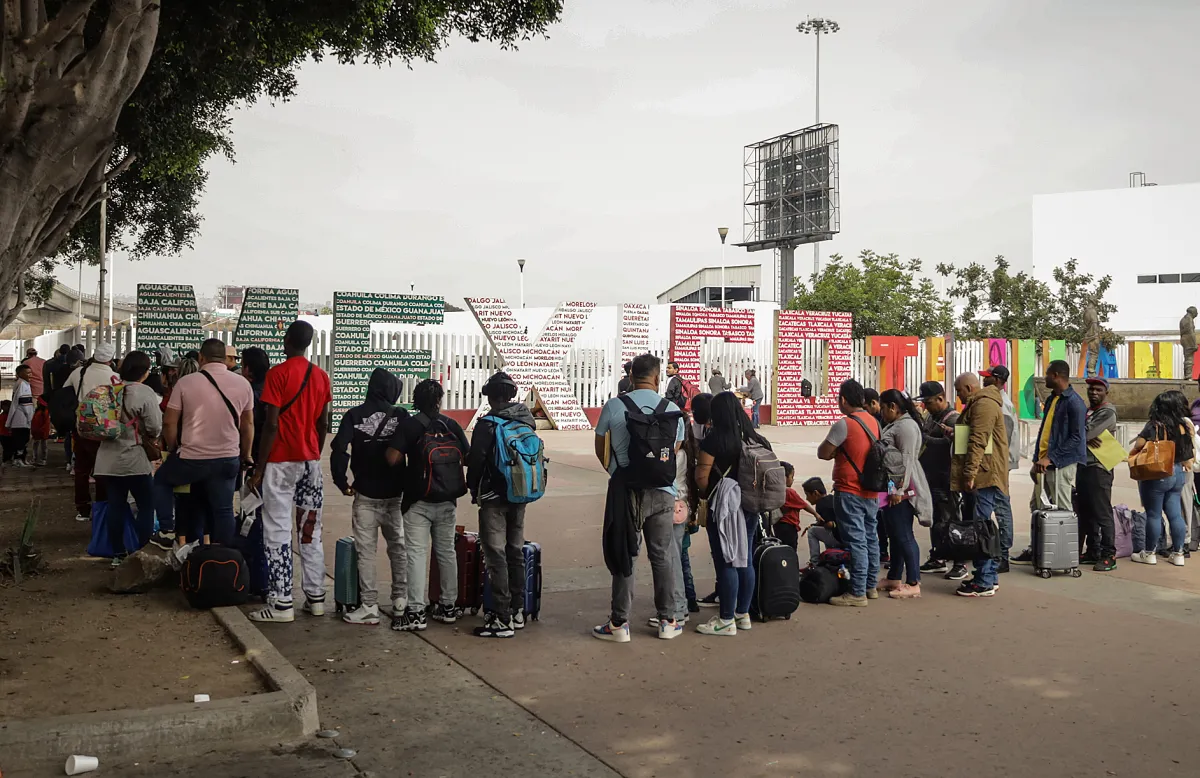
Migrants from Venezuela, Nicaragua, Haiti and Cuba are in limbo on the border of Mexico after the decision of the President of the United States, Joe Biden, not to extend temporary permits for these nationalities and the promise of the former president (2017-2021) and Republican candidate, Donald Trump, to eliminate the ‘humanitarian parole’.
The immigration restrictions, imposed as the US presidential elections approach on November 5, affect Ciudad Juárez, the epicenter of the humanitarian migration crisis in Mexico.
In the face of the elections and the change in migration policy, “there are still many people who are surely expectant, attentive to the international political dynamic,” said Jesús Enrique Valenzuela, general coordinator of the State Population Council (COESPO).
“Even, we must say, this type of situation that occurs both in Mexico and in the United States and that, in some way, could affect migration policy, because of course they somehow impact the flow of people,” he told EFE.
Without permission to migrate
The Biden Government announced on October 4 that it will not allow people from Cuba, Nicaragua, Haiti and Venezuela who arrived in the country with a program known as ‘humanitarian speech’ to extend the migration benefit for more than two years.
More than half a million people of these four nationalities have entered the country under the program, which began in October 2022 for Venezuelans and extended to the other three nationalities in February 2023.
The decision, announced less than a month before the November 5 elections, came amid criticism from Trump, who said in September that, if he returned to the White House, he would end up with the benefit.
This has left migrants who are stranded in Mexico “very worried”, such as Nicaraguan Lionel Martín Olivas.
“I left my country because I am politically persecuted and in that fact I would no longer be able to return to my country and, if they do not let me into the United States either, then it hurts me a lot because it would be in the air, I would not know what to do anymore. And, like everything, one is thinking about reaching the United States to get ahead,” he said.
Humanitarian permits for migrants
Humanitarian permits, implemented by the current Administration, allowed migrants from these countries to apply for temporary protection in the United States due to the crises in their home nations, but Trump maintained that this measure is “an invitation to uncontrolled immigration.”
Migrants who left these countries in the hope of seeking asylum in the United States now feel that their journey was in vain.
“It seems unfair to me because one spends so much work to get here and one is applying, that is, to pass legally. One is no longer going through the wall or anything like that and it seems unfair to me that you want to close the application to so many people that we want to pass legally,” said Darlenis, originally from Venezuela.
The Government of Mexico reported 200,289 Venezuelans “in an irregular migration situation” in the first half of 2024, 215% more than reported in the same period of the previous year, so Venezuela is the main country of origin of irregular migrants in Mexico, where they represent more than one in four.
Migration is one of the pillars of Trump’s campaign, who has also promised to reinstate other more restrictive policies, such as the construction of the border wall and the re-establishment of the ‘Stay in Mexico’ program, which forces asylum seekers to wait in this country.
International
DOJ and FBI officially deny Jeffrey Epstein ‘client list’ conspiracy theories
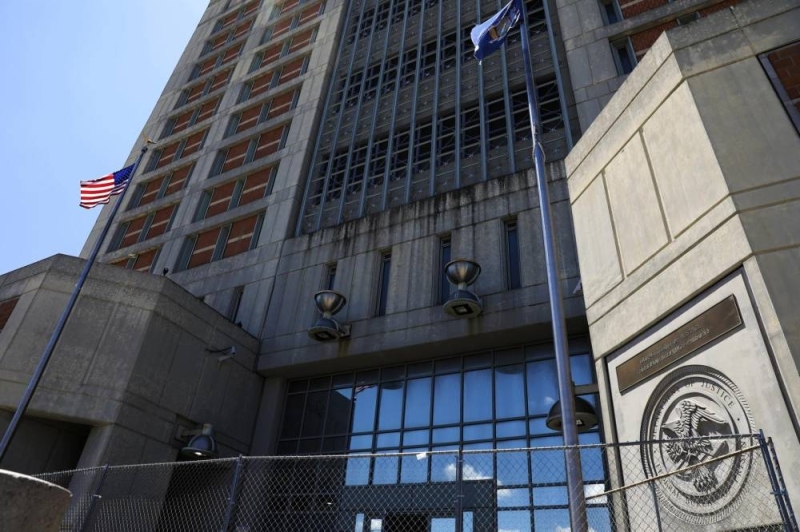
A U.S. Department of Justice (DOJ) and FBI investigation concluded that financier Jeffrey Epstein, accused of sex trafficking minors, did not maintain a “client list” for blackmail purposes and confirmed his death by suicide in a New York prison in 2019, according to reports from U.S. media on Monday.
The findings, detailed in a memo reviewed by Axios and ABC News, mark the first official denial of conspiracy theories alleging a list of influential personalities connected to Epstein and a possible murder to silence him.
The DOJ and FBI also reviewed several hours of video footage confirming that no one entered the area of the Manhattan jail where the 66-year-old billionaire took his own life while awaiting trial on charges of sex trafficking minors, aided by his associate Ghislaine Maxwell, who was prosecuted and convicted of similar crimes.
The evidence review was ordered by the Trump administration after officials like Attorney General Pam Bondi pledged to release files related to the federal government’s investigations into the case.
Epstein’s death prevented the trial from taking place, leading some in American society to demand that the Department of Justice make public the list of accomplices and clients, as well as flight logs of his private plane to the island he owned in the Virgin Islands, where some abuses reportedly occurred.
The new memo from the U.S. Justice Department warned that it will not release more investigation records and emphasized that one of its main “priorities” is “combating child exploitation and delivering justice to victims.”
“Perpetuating unfounded theories about Epstein serves none of these purposes,” the document states, according to ABC News.
International
Iranian president says Israel tried to assassinate him, warns U.S. against war
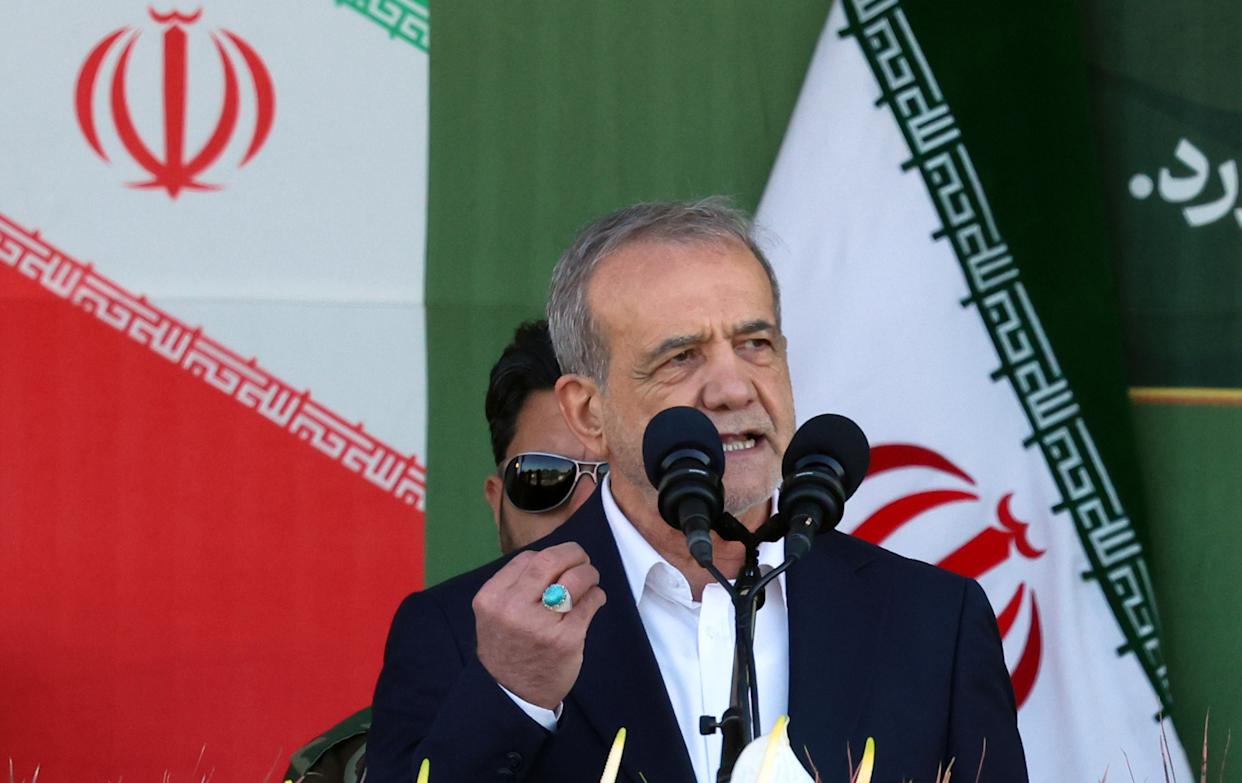
Iranian President Masoud Pezeshkian claims Israel attempted to assassinate him during a high-level meeting, but Iranian intelligence thwarted the plan, he revealed in an exclusive interview — not to a traditional news outlet, but to far-right journalist Tucker Carlson, a close ally of former U.S. President Donald Trump.
The interview was published last night on Carlson’s X account. Carlson anticipates criticism for conducting the interview but defends it by saying Americans need to understand the perspective of a country “we went to war with ten days ago, and maybe will again.”
When Carlson asks if Israel tried to kill him, Pezeshkian replies: “Yes, they tried, and acted accordingly, but they failed.” Asked for details, Pezeshkian explained: “It was during a meeting. We were discussing ways to move forward, but thanks to intelligence services and their clues, we knew they tried to bomb the area where we were gathered.”
He quickly clarified: “Of course, it was not the United States trying to end my life, it was Israel (…) I ask the U.S. not to be deceived by Netanyahu, not to be dragged into this kind of war,” a warning he repeats throughout the half-hour interview.
Relaxed in a chair, Pezeshkian answered all questions. On whether he will allow the return of International Atomic Energy Agency (IAEA) inspectors — after suspending cooperation last week — he said it is not ruled out but currently technically impossible.
“We have never been the ones to withdraw from inspections. We are ready to undergo those verifications, but unfortunately, due to illegal U.S. attacks on our nuclear sites and facilities, many parts and equipment have been severely damaged. So now we don’t have access to them,” he explained.
It is notable that Iran granted this interview to Carlson, a well-known isolationist within the Trump sphere, who, alongside ideologue Steve Bannon, opposes U.S. involvement in foreign wars that come at high economic, political, and human costs.
Carlson asked if Iran planned to assassinate Donald Trump or if it has “sleeper cells” ready to attack on U.S. soil. Pezeshkian dismissed both claims lightly: “That’s what Netanyahu wants you, the president of your country, to believe, but it’s false because Netanyahu has his own agenda—to push the U.S. into an endless war.”
International
Sheinbaum urges unity and respect after clashes over gentrification in Mexico City
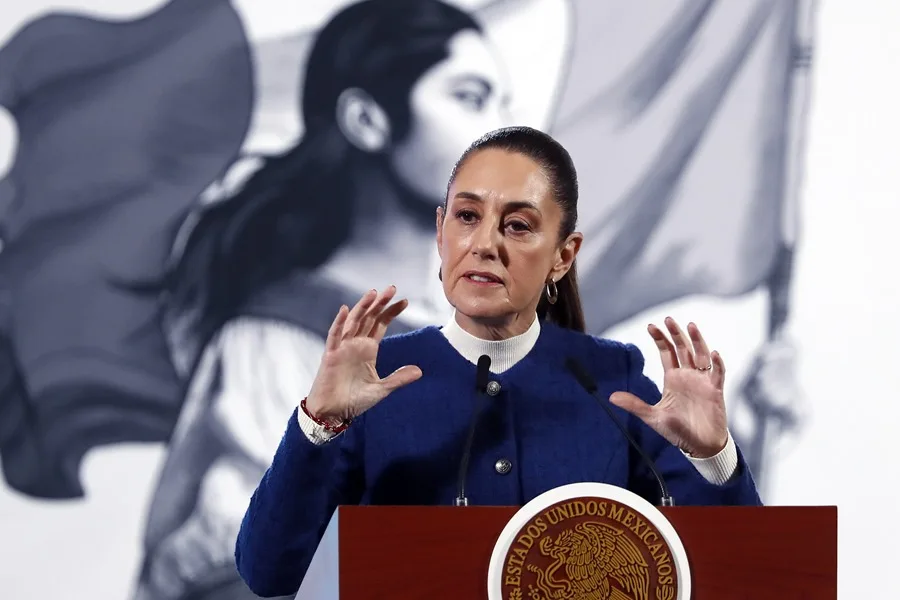
Mexican President Claudia Sheinbaum addressed the protests in Mexico City on Monday, which erupted over the weekend amid complaints of gentrification and urban inequality.
The demonstrations took place in the Condesa neighborhood, where protesters claim rising rents driven by an influx of foreigners have altered the daily lives of longtime local residents.
However, the protests escalated into clashes with local police and included discriminatory remarks toward officers and citizens.
In a strong message, Sheinbaum condemned hate speech and urged citizens to reject all forms of discrimination. “All Mexicans must clearly reject discrimination — no to racism, no to classism, no to xenophobia, no to machismo, no to discrimination. All human beings are equal and no one should be treated as less. (…) Discrimination is also a criminal offense.”
“Any man or woman who wants to live in Mexico City or anywhere in our country must respect us just as we must respect them. But these attitudes are not exclusive to foreigners living in Mexico, we also saw them in many marches last year,” the president added.
Regarding the violent incidents shared on social media, Sheinbaum said: “Gentrification is a phenomenon that must be addressed, but xenophobic behavior cannot be justified. That’s unacceptable. Anyone who comes to live in our country will be welcomed as long as they respect the laws, the rules, and appreciate the wonderful people of Mexico.”
She also highlighted Mexico’s long-standing tradition as an open and supportive country that has welcomed refugees and migrants from various nationalities during critical moments in the 20th century.
-

 International4 days ago
International4 days agoJulio César Chávez Jr. faces charges in Mexico after U.S. arrest
-

 International4 days ago
International4 days agoMexico’s president blasts ‘Inhumane’ U.S. migration law
-
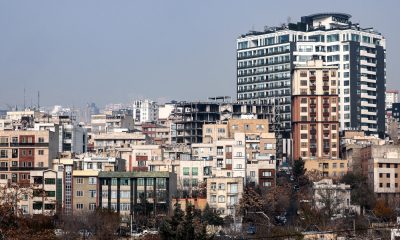
 International5 days ago
International5 days agoTehran airports resume operations as Iran lifts airspace closure
-
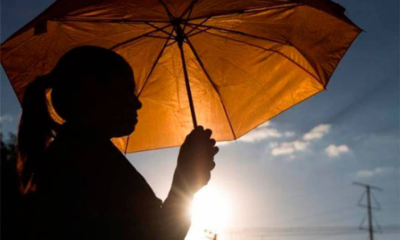
 International4 days ago
International4 days agoEurope faces a summer of heatwaves and wildfires, Red Cross warns
-

 International4 days ago
International4 days agoDenmark takes Trump’s Greenland threats seriously, rules out military annexation
-

 International5 days ago
International5 days agoMan attacks passengers with axe on german ICE Train
-

 International2 days ago
International2 days agoSalvadoran Day USA 2025 canceled amid fears of immigration raids
-

 International2 days ago
International2 days agoTexas Floods: Death toll rises to 68, dozens still missing
-
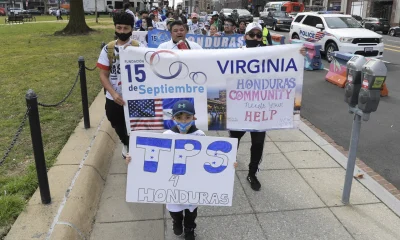
 International18 hours ago
International18 hours agoHonduras regrets U.S. decision to end TPS for 72,000 hondurans
-

 International18 hours ago
International18 hours agoGunman killed after shooting outside Texas Border Patrol Building
-
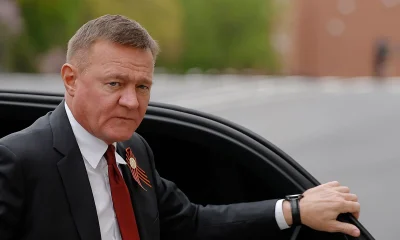
 International18 hours ago
International18 hours agoRussian ex-transport minister found dead after dismissal by Putin
-

 International18 hours ago
International18 hours agoIranian president says Israel tried to assassinate him, warns U.S. against war
-

 International18 hours ago
International18 hours agoBolsonaro thanks Trump for support amid Brazil coup trial
-

 International18 hours ago
International18 hours agoSheinbaum urges unity and respect after clashes over gentrification in Mexico City
-
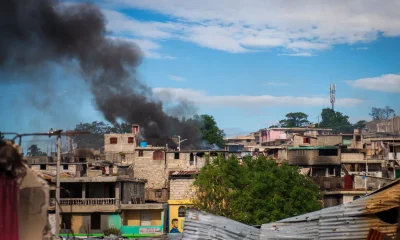
 International18 hours ago
International18 hours agoTrump ends TPS for haitians as gang violence surges in homeland
-
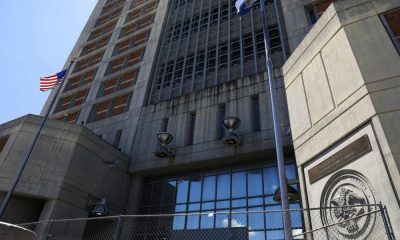
 International18 hours ago
International18 hours agoDOJ and FBI officially deny Jeffrey Epstein ‘client list’ conspiracy theories




















